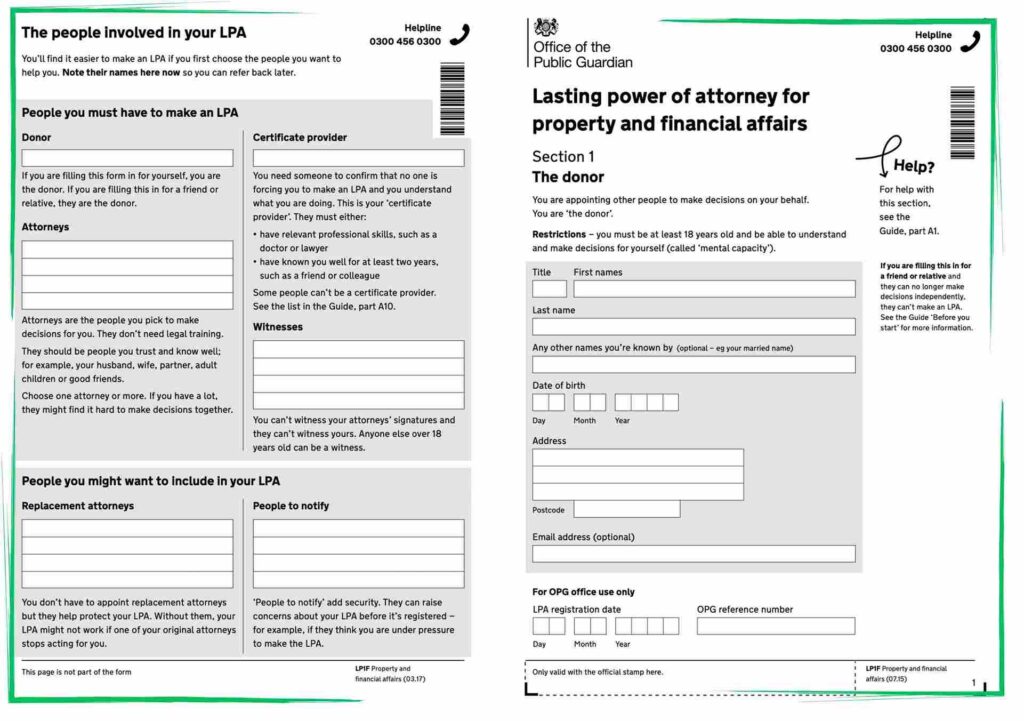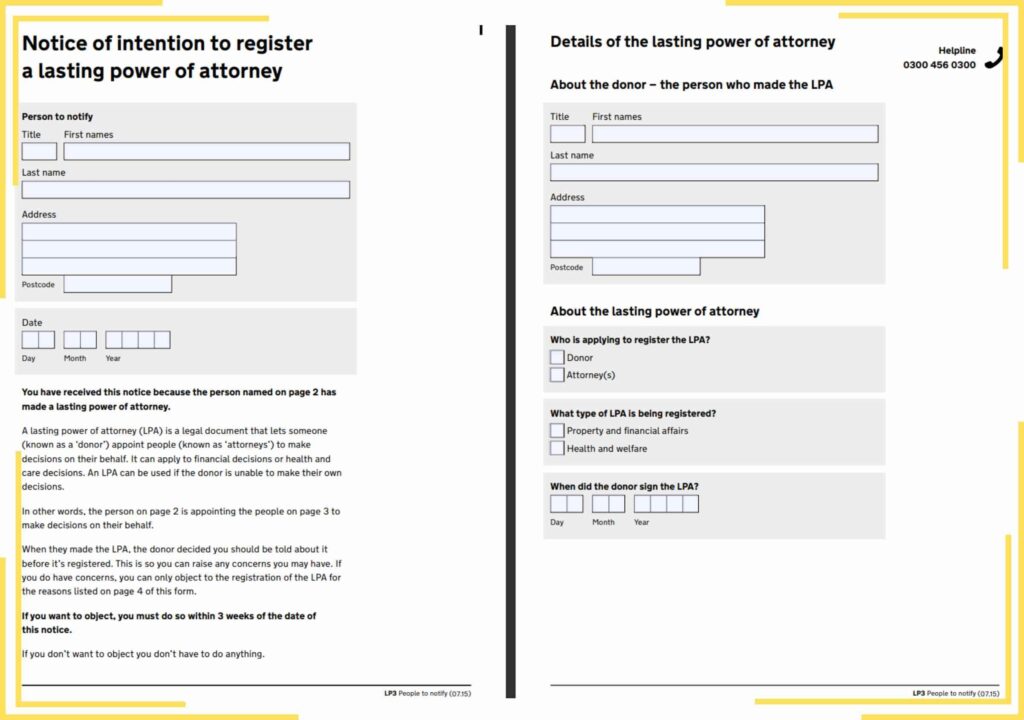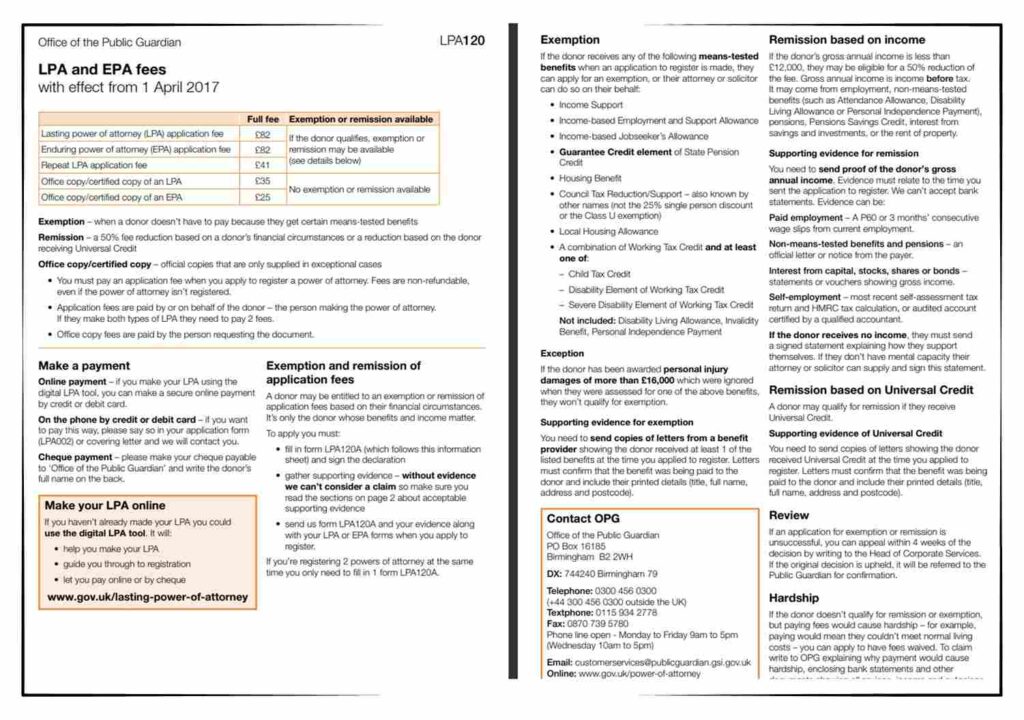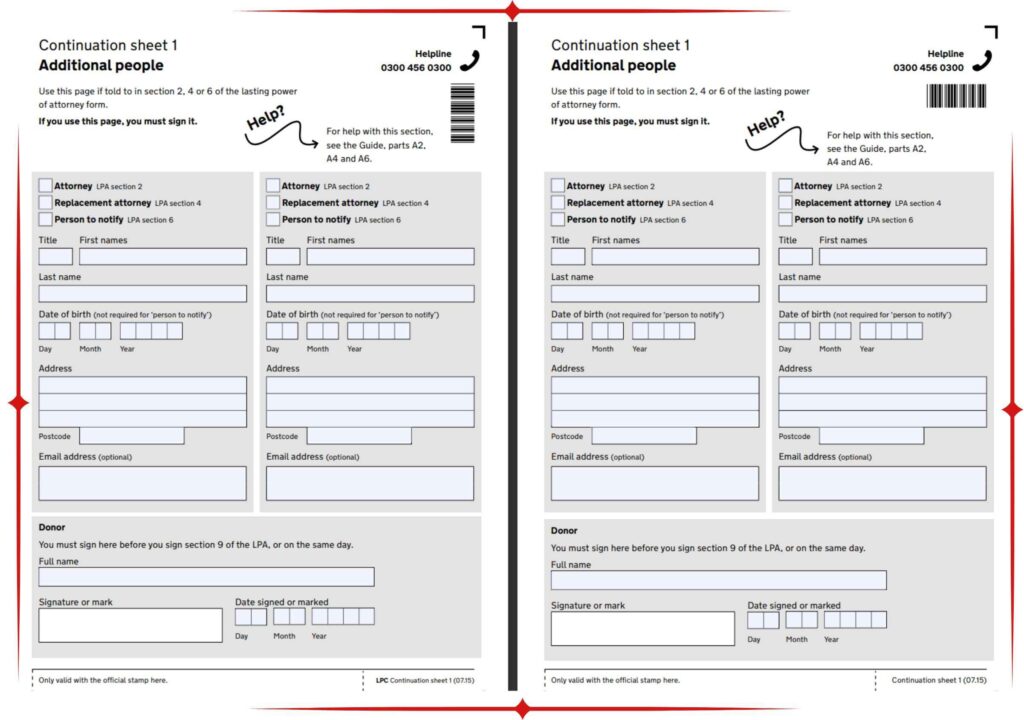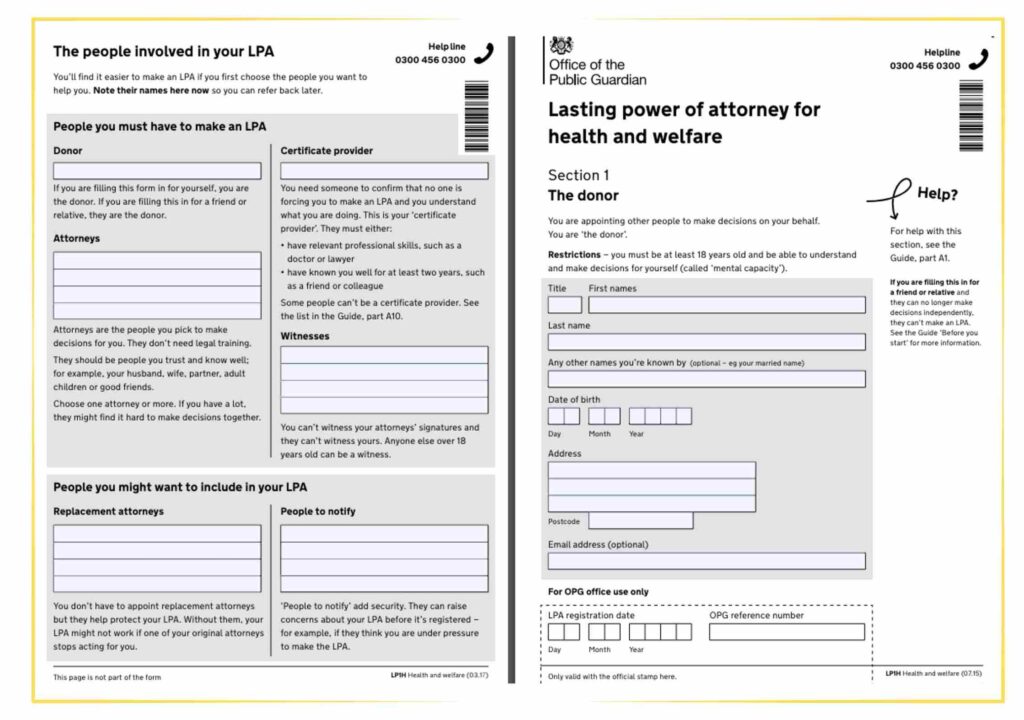The Government Power of Attorney, often abbreviated as Government POA, is a legal instrument that grants authority to an individual or entity to act on behalf of a government entity or department. The purpose of a Government POA is to facilitate efficient decision-making and representation in various legal and administrative matters. This includes matters such as tax proceedings, legal disputes, healthcare decisions, financial transactions, real estate affairs, and other areas where government entities require authorized representation.
The importance of Government POA lies in its ability to streamline processes, ensure compliance with regulations, protect government interests, and provide a structured framework for managing official affairs effectively. In legal and administrative contexts, Government POAs serve as vital tools for delegating authority and handling a wide range of responsibilities with legal legitimacy and accountability.
Table of Contents
ToggleGovernment Power of Attorney, UK
The term “Government Power of Attorney” isn’t commonly used within the UK estate planning framework. Instead, various government bodies are involved in overseeing Lasting Powers of Attorney (LPAs), which serve as the primary legal documents for appointing decision-makers on your behalf.
- The Office of the Public Guardian (OPG):
- A government agency under the Ministry of Justice’s umbrella.
- While not directly granting Powers of Attorney, it plays a pivotal role in supervising LPAs in England and Wales.
- Responsibilities include:
- Registering LPAs.
- Offering information and guidance on LPAs to the public.
- Investigating concerns regarding attorneys appointed through LPAs, especially in cases of suspected misuse of power or neglect of the donor’s best interests.
- Taking necessary action, such as issuing warnings, arranging visits to attorneys, or recommending legal steps through the Court of Protection.
- The Court of Protection:
- A specialized court addressing matters concerning individuals lacking mental capacity for decision-making.
- Authorized to oversee LPAs and intervene in scenarios like:
- Challenges to the LPA’s validity, including concerns about the donor’s mental capacity during creation or potential undue influence.
- Disputes arising between appointed attorneys and family members regarding decisions made under the LPA.
- Instances where the donor lacks mental capacity without a valid LPA, leading to the court appointing a deputy for decision-making.
Key Points:
- The government doesn’t issue Powers of Attorney directly.
- The OPG and Court of Protection play crucial roles in supervising LPAs and safeguarding the donor’s interests.
- For LPA-related inquiries or concerns, the OPG website [https://www.gov.uk/power-of-attorney] offers valuable resources. Seeking legal advice is advisable, especially in complex scenarios.
Government Lasting Power of Attorney
Although a “Government Lasting Power of Attorney” isn’t a specific entity in the UK, the government plays a pivotal role in overseeing and supporting the LPA system. Here’s a detailed breakdown of the government’s involvement:
Government Agency Roles:
- The Office of the Public Guardian (OPG):
- The OPG is a government agency responsible for supervising Lasting Powers of Attorney in England and Wales.
- Their primary functions include: a. Registration: They register LPAs to ensure their validity and maintain a centralized record. b. Information and Guidance: Providing resources and guidance to the public regarding the creation and usage of LPAs. c. Oversight and Investigation: Addressing concerns regarding attorneys appointed through LPAs. This may involve instances where an attorney is suspected of misusing their authority or not acting in the donor’s best interests. Based on their investigations, they can take actions such as:
- Issuing warnings to attorneys.
- Arranging assessments by officials to evaluate attorney conduct.
- Recommending legal steps through the Court of Protection.
- The Court of Protection:
- A specialized court handling matters concerning individuals lacking mental capacity.
- Its jurisdiction includes overseeing LPAs and intervening in scenarios like:
a. Challenged Validity: Addressing concerns about the LPA’s validity due to doubts regarding the donor’s mental capacity during creation or undue influence
b. Disputes: Resolving disagreements between appointed attorneys and family members regarding decisions made under the LPA.
c. No Valid LPA: Appointing a deputy to make decisions on behalf of the donor if they lack mental capacity and no valid LPA is in place.
Key Points to Note:
- The government doesn’t directly create or manage LPAs but ensures their proper utilization.
- The OPG and Court of Protection safeguard the integrity of LPAs and uphold the donor’s wishes.
- Valuable information about LPAs can be found on the GOV.UK website [https://www.gov.uk/power-of-attorney]. Seeking legal counsel is advisable for navigating complex situations or obtaining legal advice.
Government Power of Attorney Forms
Government Power of Attorney Financial Decisions
Government Power of Attorney Financial Decisions
Government Power of Attorney Form To Notify People
Government Power of Attorney Form To Notify People
Government Power of Attorney and EPA Fees
Government Power of Attorney and EPA Fees
Government Power of Attorney Continuation Sheets
Government Power of Attorney Continuation Sheets
Government Power of Attorney Health and Care Decisions
Government Power of Attorney Login
In the UK, there isn’t a “Government Power of Attorney Login” system because the government doesn’t directly oversee Lasting Powers of Attorney (LPAs). However, there are government websites that offer information and resources related to LPAs.
Here’s a detailed breakdown of relevant online resources:
- GOV.UK – Power of Attorney: https://www.gov.uk/power-of-attorney
- This website provides comprehensive information on LPAs, including:
- Explanation of what LPAs are and how they function.
- Different types of LPAs, such as financial and health & welfare.
- Access to downloadable LPA forms.
- Guidance on completing and registering the forms with the Office of the Public Guardian (OPG).
- This website provides comprehensive information on LPAs, including:
- Office of the Public Guardian (OPG): https://www.gov.uk/government/organisations/office-of-the-public-guardian
- While the OPG website doesn’t have a login system, it offers valuable information regarding:
- Registering your LPA.
- Details about the fees associated with registration.
- Steps to take if you have concerns about an attorney appointed through an LPA.
- While the OPG website doesn’t have a login system, it offers valuable information regarding:
Online Actions You Can Take:
- Download LPA Forms: You can easily download the necessary LPA forms directly from the GOV.UK website.
- Register Your LPA: Although there isn’t a login system, the OPG website provides clear instructions on how to register the completed LPA forms.
Important Points to Remember:
- There isn’t a centralized online system for managing LPAs; the physical LPA documents serve as the official record.
- It’s crucial to keep the original LPA documents safe and secure.
- For any inquiries regarding managing your LPA or specific questions about a registered LPA, it’s recommended to directly contact the Office of the Public Guardian.
How Did the Government Overcharge On Power of Attorney?
Between April 1, 2013, and March 31, 2017, the UK government overcharged for registering Lasting Powers of Attorney (LPAs). Here’s a detailed breakdown of the situation:
- The Issue:
- The Office of the Public Guardian (OPG) charged a £110 application fee for registering LPAs during this period.
- The Problem:
- The actual processing costs for the OPG to register an LPA were lower than £110, resulting in a surplus generated by the application fee.
- The Resolution:
- In 2017, the OPG acknowledged the overcharge and reduced the application fee to £82.
- A refund scheme was initiated for individuals who applied to register an LPA between April 1, 2013, and March 31, 2017.
- Reasons for Overcharging:
- Increased Volume: A surge in LPA applications might have initially led to an underestimation of processing costs.
- Inefficient Processes: The OPG’s processing methods during that time might have been less efficient than expected, contributing to higher costs.
- How to Claim a Refund:
- If you applied to register an LPA in England or Wales within the specified timeframe, you may be eligible for a partial refund.
- Visit the GOV.UK website for detailed information and instructions on how to claim a refund: https://www.gov.uk/power-of-attorney-refund
- Key Points:
- The government has acknowledged and rectified the overcharge issue.
- The application fee has been reduced from £110 to £82.
- A refund scheme is in place for individuals who were overcharged during the mentioned period.
How Much Does Government Power of Attorney Cost?
In the UK, there is no direct issuance of a “Government Power of Attorney” because the government is not involved in creating these documents. However, there are associated fees with Lasting Powers of Attorney (LPAs), which are the primary legal instruments used to designate decision-making authority.
Here’s a detailed breakdown of the costs involved in creating an LPA:
- LPA Forms:
- Downloading the LPA forms from the official government website (GOV.UK) is free of charge: https://www.gov.uk/government/publications/make-a-lasting-power-of-attorney.
- Registration Fee:
- There is a fee for registering your completed LPA with the Office of the Public Guardian (OPG). As of April 2024, the registration fee stands at £82.
- Witness Fees:
- While there is no legal obligation to pay your witnesses for signing the LPA forms, it is customary to show appreciation. This may involve offering a small gift or covering their travel expenses.
- Legal Advice (Optional):
- Seeking legal advice for assistance in completing the LPA forms or addressing complex situations can result in additional legal fees.
Here’s a summary of the main costs involved in creating an LPA:
- Essential Costs: £82 (registration fee)
- Optional Costs: Witness appreciation gifts and potential legal fees
Additional Considerations:
- Accuracy in completing the LPA forms is crucial to avoid delays or the need for resubmission, which could lead to additional fees.
- Evaluating the potential benefits of seeking legal advice is important, especially for complex scenarios or if you have uncertainties about completing the forms accurately.
FAQ
What is a Government Power of Attorney in the UK?
In the UK, there isn’t a specific legal term known as a “Government Power of Attorney.” Nevertheless, the government plays a pivotal role in supervising a system known as Lasting Powers of Attorney (LPAs), which serves a similar function.
Here’s a detailed overview of how this system operates:
- Lasting Powers of Attorney (LPAs):
- LPAs are legal instruments that empower you (as the donor) to designate a trusted individual (the attorney) to make decisions on your behalf in the event of mental incapacity.
- Government Involvement:
- While the government doesn’t directly issue LPAs, agencies like the Office of the Public Guardian (OPG) have essential roles such as:
- Providing Information and Forms: The OPG offers informational resources and downloadable LPA forms through the GOV.UK website.
- Registration: They oversee the registration of LPAs, ensuring their validity and maintaining a central registry.
- Oversight: The OPG investigates any concerns or issues raised regarding attorneys appointed through LPAs.
- While the government doesn’t directly issue LPAs, agencies like the Office of the Public Guardian (OPG) have essential roles such as:
- Court of Protection:
- This governmental court may intervene in complex LPA-related matters, including disputes or challenges regarding the validity of LPAs.
Key Points to Note:
- LPAs, not “Government Power of Attorney,” are the primary legal mechanism for delegating decision-making authority.
- The government supports and supervises the LPA system, although direct management of LPAs is not within their scope.
This framework ensures that individuals have a reliable means to plan for potential incapacity while maintaining governmental oversight to safeguard against misuse or disputes.
Who issues Power of Attorney documents in the UK?
In the UK, Power of Attorney documents are not directly issued by any government agency. The process involves various entities as follows:
- The Donor (You): You, as the individual creating the Power of Attorney document (often referred to as a Lasting Power of Attorney – LPA in the UK), are responsible for initiating and completing the document.
- Solicitors (Optional): While not obligatory, you have the option to seek assistance from a lawyer (solicitor) to help draft the LPA document, ensuring it aligns with your specific requirements.
- Witnesses: The LPA document necessitates signatures from witnesses who meet specific criteria outlined in the provided guidance materials.
Once the document is completed:
- Office of the Public Guardian (OPG): This government agency is responsible for registering your LPA. While registration is not mandatory, it serves as legal proof of the document’s validity and facilitates its utilization by the appointed attorney.
In summary:
- The donor initiates and completes the LPA document, with optional legal assistance if desired.
- Witnesses sign the document as per the specified criteria.
- The donor has the choice to register the LPA with the OPG, which is recommended for legal validation and ease of use by the attorney.
While the government does not directly issue these documents, they play a crucial role in overseeing the process through registration services and by providing informational resources.
What is the role of government agencies in the Power of Attorney process?
In the UK, the government does not directly issue Power of Attorney documents, known as Lasting Powers of Attorney (LPAs), but it plays a pivotal supportive role through various agencies. Here’s an overview of their key functions:
- The Office of the Public Guardian (OPG):
- Provides Information and Resources: The OPG offers comprehensive information about LPAs on the GOV.UK website. This includes downloadable forms, guidance on completing them, and explanations of different LPA types such as financial and health and welfare.
- Registration Services: The OPG registers LPAs, creating a central record and verifying their validity. Although registration is not mandatory, it bolsters the LPA’s legal standing and enhances its usability by the appointed attorney.
- Oversight and Investigation: The OPG investigates concerns raised regarding attorneys appointed through LPAs. This involves situations where suspicions arise about the attorney misusing their power or not acting in the donor’s best interests. Based on their findings, they can take actions like issuing warnings or recommending legal proceedings through the Court of Protection.
- The Court of Protection:
- Specialized Jurisdiction: This court handles matters concerning individuals lacking mental capacity. It intervenes in LPA-related situations when:
- Validity is Questioned: Doubts arise about the donor’s mental capacity or undue influence during LPA creation.
- Disputes Emerge: Family members contest decisions made by the LPA-appointed attorney.
- Absence of a Valid LPA: If no valid LPA exists and the donor lacks mental capacity, the Court appoints a deputy to make decisions on their behalf.
- Specialized Jurisdiction: This court handles matters concerning individuals lacking mental capacity. It intervenes in LPA-related situations when:
Key Points to Note:
- The government’s role is primarily supportive, with the OPG providing resources and facilitating LPA registration.
- The Court of Protection serves to safeguard the system and address intricate disputes or situations.
- Seeking legal advice is advisable for navigating complex LPA-related matters or seeking professional guidance.
What are the costs associated with creating an LPA in the UK?
The costs associated with establishing a Lasting Power of Attorney (LPA) in the UK can vary based on several factors. Here’s a breakdown of the potential expenses involved:
Essential Costs:
- Registration Fee: This is a mandatory fee to register your completed LPA with the Office of the Public Guardian (OPG). As of April 2, 2024, the current registration fee stands at £82 per LPA. Whether you register one LPA for financial decisions, one for health and welfare decisions, or a combined LPA covering both aspects, the registration fee applies to each LPA you opt to register.
Optional Costs:
- LPA Forms: You can freely download the LPA forms from the government’s website (GOV.UK) [https://www.gov.uk/government/publications/make-a-lasting-power-of-attorney].
- Witness Fees: While there’s no legal obligation to compensate your witnesses, it’s customary to show appreciation, whether through a small gift or covering their travel expenses. The actual cost would vary depending on the gesture you choose.
- Legal Advice: Seeking guidance from a solicitor (lawyer) to assist with completing the LPA forms or navigating complex situations can result in additional legal fees. The costs here will vary based on the complexity of your circumstances and the rates charged by the solicitor.
Here’s a summarized table of the costs associated with LPAs:
| Cost | Description | Mandatory | Typical Range |
|---|---|---|---|
| Registration Fee | Fee for registering LPA with OPG | Yes | £82 per LPA |
| LPA Forms | Downloading government forms | No | Free |
| Witness Fees | Appreciation for witnesses (optional) | No | Varies (gift, travel expenses) |
| Legal Advice | Solicitor assistance (optional) | No | Varies depending on complexity and solicitor rates |
Additional Points to Note:
- Accurate completion of LPA forms is crucial to avoid potential delays or the need for resubmission, which would incur an additional £82 registration fee for each resubmitted LPA.
- Consider seeking legal advice, especially for intricate situations or if you have any uncertainties about completing the forms. A solicitor can help ensure your LPA aligns with your wishes and reduces the likelihood of future challenges.

Hello, I’m Inna Evdokimova, an IP Lawyer and Patent Attorney based in the United Kingdom. With a passion for intellectual property law, I specialize in providing expert guidance and legal representation to clients navigating the complexities of patent law in the UK.
With years of experience in the field, I’ve cultivated a deep understanding of the intricacies of intellectual property rights, empowering individuals and businesses alike to protect their innovations and creations effectively.
Through my website, powerofattorneyuk.uk, I aim to serve as a valuable resource for those seeking clarity and assistance in matters of patent law and intellectual property rights. Whether you’re looking to secure a patent for your invention or require guidance on IP-related legal issues, my mission is to provide you with personalized, reliable solutions tailored to your unique needs.
I’m dedicated to helping my clients safeguard their intellectual property assets and navigate the legal landscape with confidence. With a commitment to excellence and client satisfaction, I strive to deliver results-driven strategies and advocacy that exceed expectations.
I look forward to the opportunity to assist you on your intellectual property journey and help you unlock the full potential of your innovations.

